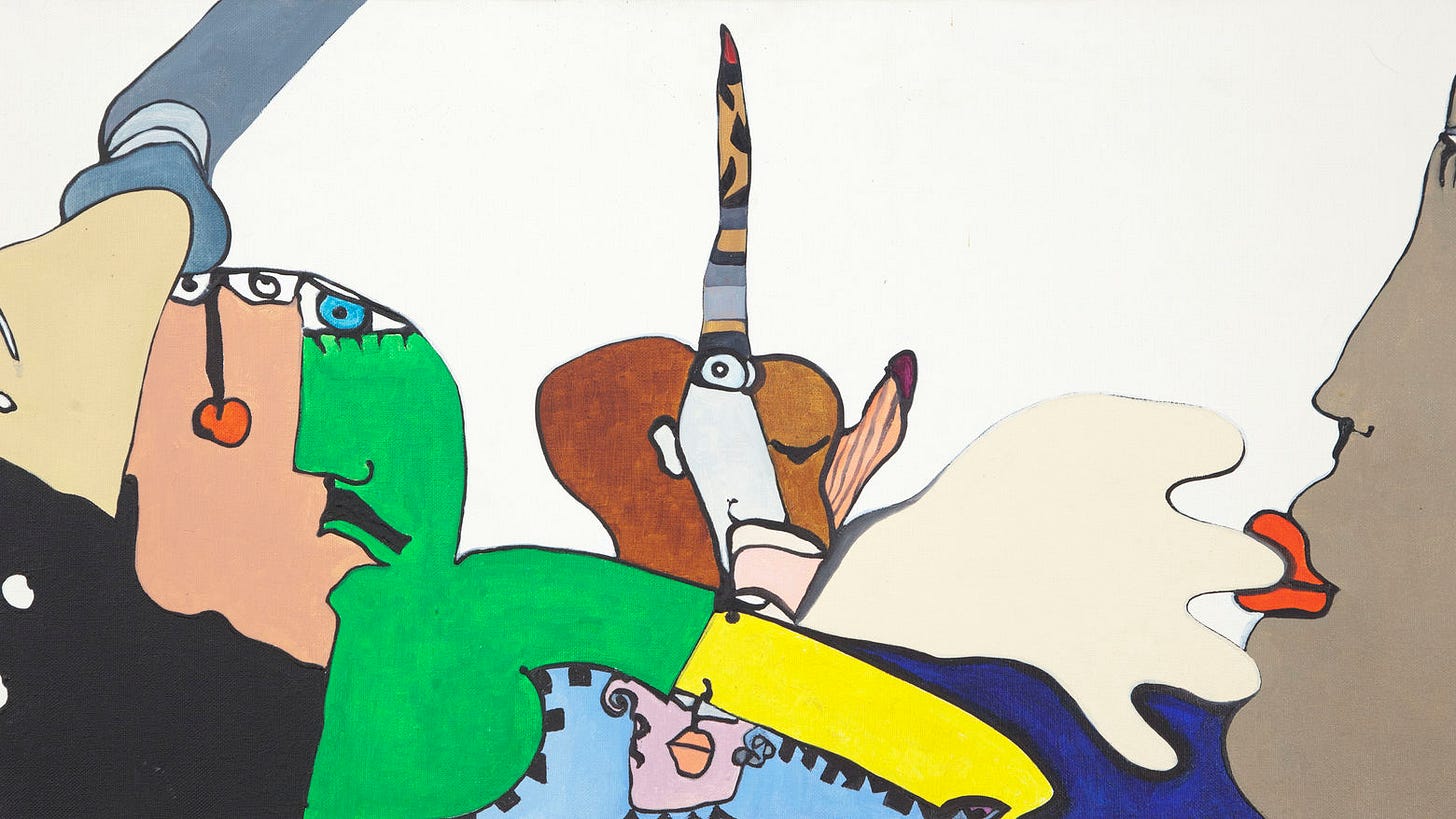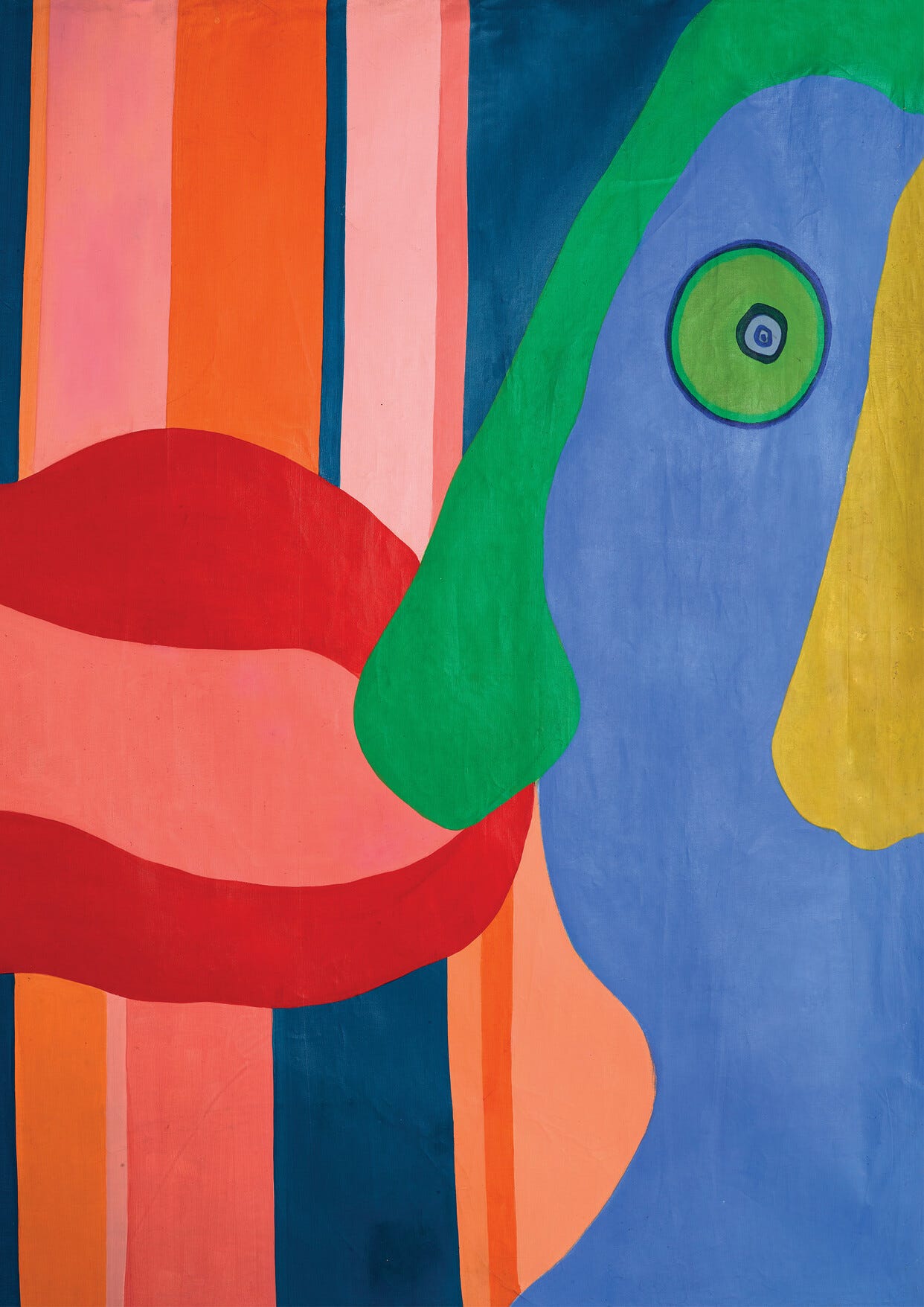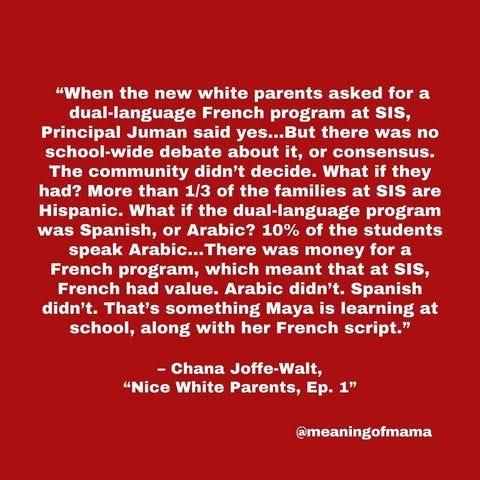What Makes a Language “The Best”? (Asking for "The Mamas”)
On how much is lost when we value one language over another

There is a lot of misinformation around raising bilingual children online (e.g., children are sponges, there is a cut-off age for learning a language, bilingualism causes confusion or speech delays — no, no and definitely no). I used to take it all to heart and would comment on as many posts as I could on various social media platforms, offering advice, evidence-based information, expertise, repeatedly. It was exhausting, and I soon realized my time is better spent educating and informing in different ways rather than arguing with people online who believe they know all-things language because they use one (true story).
But occasionally, I save a post that really gets me going, especially if it is written by someone with a substantial following who continuously puts out misleading information about multilingual parenting. I want to discuss one of these posts today but with the caveat that it is not about naming and shaming, but rather, talking about how what seems like an informative and innocent post can be discriminatory, racist, and dangerous. I also approach this discussion with caution because I am all for promoting multilingualism, language-learning and exposing children to as many cultures and languages as possible, but sometimes, the best intentions completely miss the mark.
The post in question that recently raised my blood pressure was, as the author noted, for “the mamas”. Right away I thought about how much work the term “mamas” does to tug at the heartstrings of (multilingual) mothers:
Hey Mamas! Don’t miss out, make sure your children learn a new language NOW – hurry, hurry, hurry. Hey mama, I got you but don’t wait, children NEED to learn a new language when they are little otherwise, you’ve completely failed them.
This wasn’t the caption, but this is the main message of the account: it is the mother’s responsibility to optimize her children’s language-learning, ideally in the early years when she is likely already anxious and super tired from general parenting stuff, all with a sense of urgency to get it done right now or it will be too late. (As I say on repeat, it is never too early, and it is never too late to learn an additional language. And if you’re new here, I also talk a lot about how raising multilingual children is highly-emotional mental and physical labour, predominantly performed by mothers.)
On the topic of “mamas”, the wonderful author Sara Petersen from
and I talked about “mama” vs. “mom” in the context of online spaces a while back. Her new book, Momfluenced is coming out next month! I can’t wait because for one, I am endlessly fascinated by the use of “(hey) mama” (as in, “I got you, mama”) to signal comradery and connection with mothers online, while at the same time, using it to sell a product or lifestyle.
But back to that post. It was about “the best foreign language to teach your child” and was separated by location: U.S., UK, and Australia/New Zealand. (Note: I, like most linguists, would never use “foreign” when referring to an additional language, but that was the title.) For each location, three vertical rows appeared, each one shaded less than the previous one. For the U.S., the consensus was that Spanish was “the best” language to learn, followed by French and Chinese. For the UK, in order: French, Spanish, and German. And for Australia/New Zealand: Chinese, French and third, German. The caption included the reasons for the choices: Spanish is widely spoken in the U.S. (it is); France is close to the UK (it is but also, seems like a stretch) and is “valued” in the UK (huge sigh but I will get to that in a sec) and Chinese because it has become “widespread” across Australia/NZ.
Like “mamas”, “value” and “best” do a lot of work. French is indeed valued in the UK because of something called language prestige, or in non-linguistics terms: a pretty f’in shitty phenomenon that considers some languages more prestigious, and in turn, more valuable than others. When a language is considered “valued”, “the best” or prestigious, it immediately sends the message that there are languages that are not valued, that are less than “the best”, and not worth the effort and time to learn or, for many immigrant families, maintain and transmit to future generations.
All languages are equal, all languages are important, and all languages and language varieties have value. This type of message also perpetuates that some multilingualism is more equal and better than other types of multilingualism, an already existing and prevalent problem. In the UK, languages such as French, German, Italian and Spanish are often considered to be an investment, a form of capital for a child (i.e., they look great on a CV). But what about widely used languages like Romanian, Tamil, Urdu, Farsi, Zulu, Polish?
In her book, Speaking and Being: How Language Binds and Frees Us, Kübra Gümüşay asks the same question, whether when a British child’s second or third language is Urdu, Punjabi, Gujarati, Turkish, Kurdish, Bosnian, Malaysian, is that child regarded as an exceptional talent to the same extent as a child who knows French, Spanish, or German? Gümüşay also writes about being 14 years old, growing up in Hamburg and purposely omitting her first language, Turkish on her CV.
“I intuitively thought that Turkish somehow didn’t count. I remembered what a teacher had told us at primary school: ‘We don’t speak Turkish here.’ Turkish was a language spoken by immigrants. You don’t learn Turkish, you unlearn Turkish.”
This relates to the question of who gets to be bilingual? Or which child is praised (hint: the white child learning a new language considered prestigious) and which child is reprimanded for speaking a heritage/home language at school, labelled an English as additional language learner and told to replace a home language with the school language (no hint necessary). I will write more about raciolinguistics soon as there is incredible work being done in the field to highlight the many inequalities and injustices.
Related, this is an interesting article from The Atlantic on white privilege and early-childhood programs in the U.S. and the podcast Nice White Parents, from a few years go, also goes into the perceived value French had over Arabic and Hispanic in a New York public school when the new white parents wanted a dual-language program.
There are so many reasons to expose and teach a child a new language, but there is also incredible privilege associated with it. Many families struggle daily to hang on to heritage languages because a lack of resources, support for the family and many other reasons simply because their language is not considered as important or as valuable as another language, most often English but depending on the location, other majority/societal languages.
Many mothers in my academic study who reported positive experiences of raising multilingual children often added something about how it was because English, the non-societal language where they live, was considered a prestigious language so people approved. Other mothers, who spoke to their children in public in a language that was not considered prestigious reported more negative comments.
To end, I will share a link to a powerful video I came across on Instagram via a couple of lovely bilingual moms and educators I follow. It is called, “A Lifetime without Spanish” and tells the story of what happens when a language is not valued by society, by schools, by the public, when it is perceived as worthless and far from “the best” and how that affects multiple generations in a family.
As always, thank you for reading.
And one last Huguette Caland I posted last weekend, with a caption about how when I first saw her work at the Tate Modern, it made me think how non-linear our identities as mothers and as multilinguals truly are.



